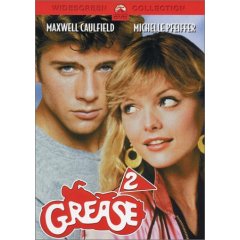Another "Academic Freedom" case has made the headlines this summer, reminding me that I am soon about to return to the classroom, after my sabbatical, and face off again with students who feel entitled to accuse us of "liberal indoctrination." Thomas Nadelhoffer has already covered this story over at the Leiter Reports. The good news is that the Provost, Patrick Farrell, has stepped in and refused to fire Kevin Barrett. Barrett said that 9/11 was an "inside job" on a right wing news program. These comments, said out of the classroom, were the grounds upon which a Republican state legislator said he should be fired.
Hence, what we are dealing with here is the question of whether or not a college professor can be fired for comments he makes in the public square. Do we have to keep our "professorial" hats on when we enter into public discourse? And, if so, what exactly does it mean to keep our professorial hats on? One can peruse the existing case law on faculty and institutional academic freedom, or turn to Stanley Fish, who has what he thinks is a simple formula for determining the proper limits of faculty free speech are, articulated in his NYT op-ed. Fish's view came as no surprise to me, since he made a similar argument at our own free speech conference. I didn't agree with him then, and surely not now. Let me summarize.
First, what is Fish's argument?:
"In short, whether something is an appropriate object of academic study is a matter not of its content (. . .)
But no idea belongs in the classroom if the point of introducing it is to recruit your students for the political agenda it may be thought to imply.
It is perfectly possible to teach a viewpoint without embracing it and urging it. But the moment a professor does embrace and urge it, academic study has ceased and been replaced by partisan advocacy. And that is a moment no college administration should allow to occur. (. . .)
There is, in fact, no academic requirement to include more than one view of an academic issue, although it is usually pedagogically useful to do so. The true requirement is that no matter how many (or few) views are presented to the students, they should be offered as objects of analysis rather than as candidates for allegiance.
There is a world of difference, for example, between surveying the pro and con arguments about the Iraq war, a perfectly appropriate academic assignment, and pressing students to come down on your side. ( . . .)
All you have to do is remember that academic freedom is just that: the freedom to do an academic job without external interference. It is not the freedom to do other jobs, jobs you are neither trained for nor paid to perform. While there should be no restrictions on what can be taught — no list of interdicted ideas or topics — there should be an absolute restriction on appropriating the scene of teaching for partisan political ideals. Teachers who use the classroom to indoctrinate make the enterprise of higher education vulnerable to its critics and shortchange students in the guise of showing them the true way."
Shorter Fish: When you are in the classroom, you have no opinions; you cannot advocate for a particular view, rather, you must be neutral.
This is nonsense. However, I will focus on two specific criticisms of Fish's argument: (1) the untenability of the analysis vs. advocate position and (b) the false analogy to judges (to be explained below).
Fish argues that no faculty member should ever let it be known that he or she advocates a particular position in the classroom, because to do so is to indoctrinate. However, Fish's argument assumes that advocating an idea is fundamentally wrongheaded. Somehow, faculty members are suppose to offer up information and let the students figure out what they should believe. If this is our job, then why does anyone pay us to do it? Wouldn't it be more fitting to give all young people a library card and computer connection and let them ferret out what is good, useful knowledge from what is garbage. Since Fish's argument appeals to the ultimate autonomy of the student, it seems rather foolish to have schools anyway. But, as much as Kant's argument in "
What is Enlightenment?", inspires me, it simply isn't practicable.
One of the jobs of faculty is to sift through the wealth of information out there and choose what is worth teaching to students. That very first decision--what should I teach?--already has buried within it a kind of advocacy for what ideas count. If faculty teach a variety of viewpoints on a particular issue, it may be to help bolster the better arguments or because on that issue, it is far from clear what the right answer is. In any case, it would be foolish to think that faculty could design courses in which the information offered up was merely for the student to make sense of, and make decisions about, independently from what the faculty thinks is the correct or most likely answer. I would say that the minute a faculty member proposes a course to teach, his or her allegiances to certain ideas are already made manifest. This stance of neutrality towards ideas is silly. How silly this is becomes clearer when we think of what a developmental biologist (like Za) does. How can one expect such an academic to remain neutral on whether or not evolution is the best theory we have for understanding species or speciation? Should Za refrain from defending evolution in the public square? If he were to call into a right wing news station and point out how bad for science funding the Bush administration has been, should he be fired for being a partisan for certain ideas? If he defends global warming is he being irresponsible?
The fact is that being an advocate for certain views is only problematic when either the state finds such views controversial or problematic or other political entities, such as the looney right wing groups that want to censor faculty speech in or outside the classroom. Would Fish have written this same Op-ed piece if the case consisted of a faculty member calling into a news program decrying Dover's decision to teach Creationism?
Now, to my second point: Fish makes an analogy to what judges do:
This restraint should not be too difficult to exercise. After all, we require and expect it of judges, referees and reporters. And while its exercise may not always be total, it is both important and possible to make the effort.
I think the better analogy would be trial attorneys. In the courtroom, you have two passionate legal teams advocating a particular position, and the jury and judge get to make decisions about who made the better argument. Why does Fish think that the role of faculty member is equivalent to the role of judge? Doesn't it make more sense to see faculty as passionate advocates of certain views? And, isn't the entire college experience one in which students confront radically different viewpoints and then sort all of this out for him or herself? Does advocating a position really lead to indoctrination? It seems that Fish believes in the absolute autonomy of students, but then fears that this autonomy is so fragile that we have to restrain faculty members from offering up their own position on matters because it will lead to brainwashing. How can that be when students encounter such a variety of positions and viewpoints during their college experience.
SteveG and I don't really agree on a single thing when it comes to Philosophy. We teach totally different traditions, and traditions that are hostile toward each other. Are you going to tell me that if SteveG advocates Analytic Philosophy as the best way to do philosophy, then all students who take his courses will be totally immune to what I have to say?
Look, I just don't get this artificial and untenable distinction that Fish makes. And what I think I dislike the most about it is the power it gives to administrators (a power which Patrick Farrell used wisely) to muzzle faculty if it means that the college will get some negative attention. When I asked
Greg Lukianoff, the President of
FIRE, what he thought of Fish's comments, he was surprised that Fish would curtail the free speech rights of faculty. And, FIRE is no friend of liberal faculty. So when I would rather have FIRE defend me than Stanley Fish, you know something is messed up!
UPDATE: See
Ann Althouse's post on Fish. While she spends more time than I care to on why Barrett is a looney, she has some interesting points about the "process" vs. "substance" distinction that Fish and others make in relation to Academic Freedom.








